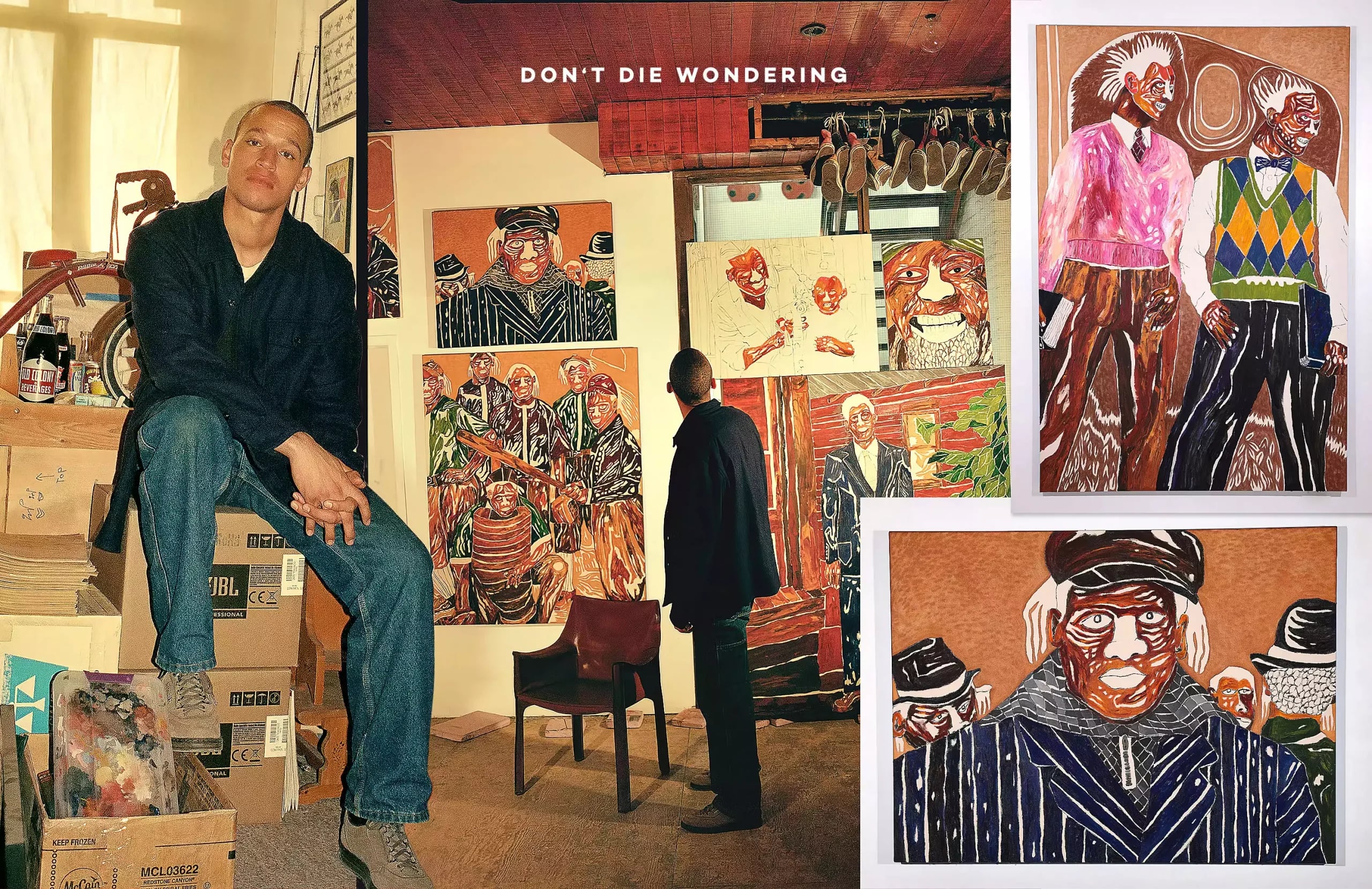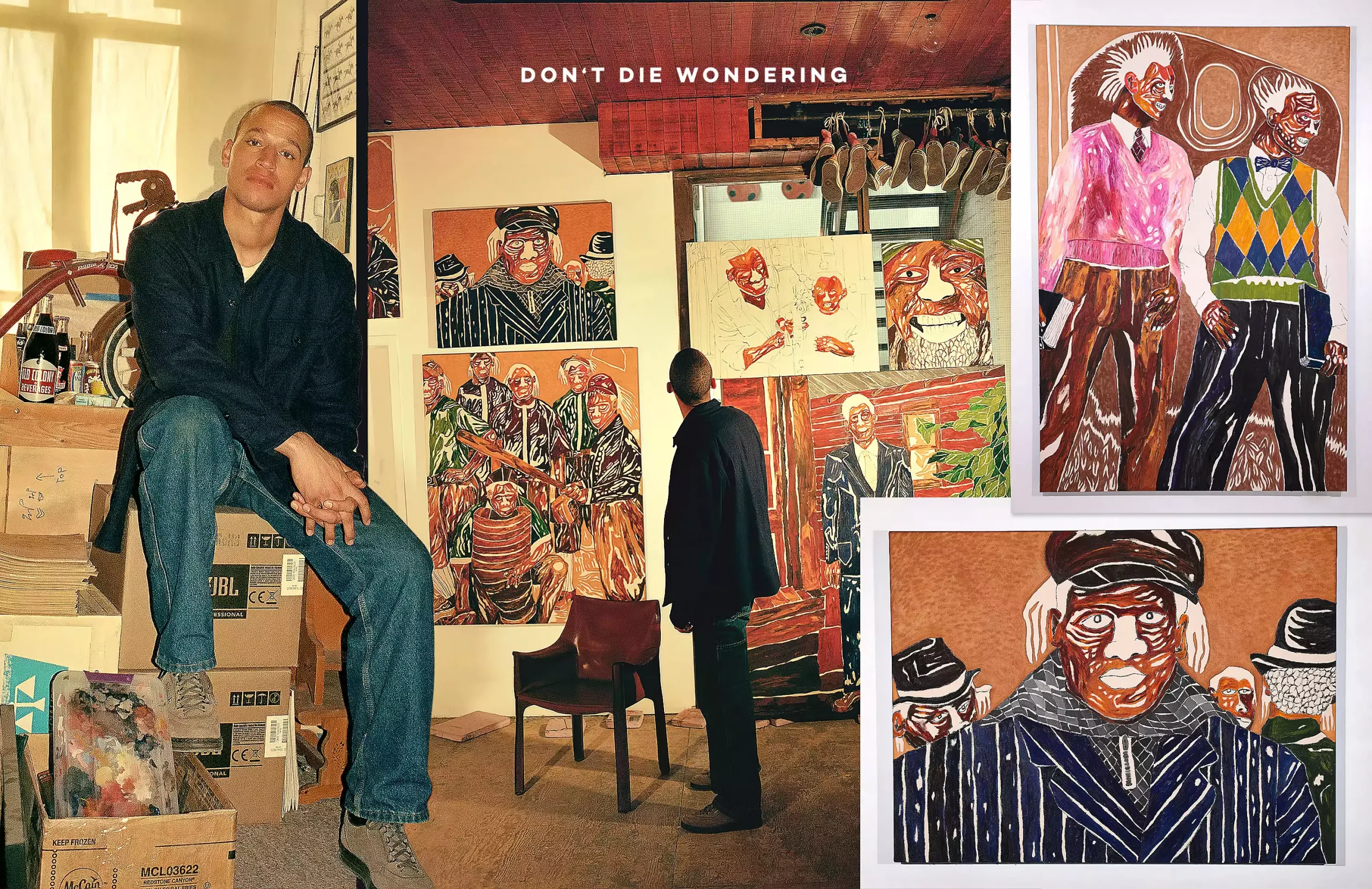Chase Hall’s practice across painting and sculpture to activate and disrupt generational traumas encoded in American history.
As a child and even through his teenage years, the artist Chase Hall says he was “always observant and imaginative,” according to W Magazine.
Born in 1993 in Saint Paul, Minneapolis, and now based in New York, Hall makes paintings, sculptures, photographs, videos, and sound works that “scrutinise America’s past and present while interrogating the realities of being biracial,” according to a release.

When it comes to the 29-year-old style, the self-taught artist’s experimentation “with mark-making, colour, and tone on raw cotton canvas produces figures rendered with a partial vibrancy: you may see a face but not a torso, an arm but not a nose” says SSense.

Since he never went to any type of art school, he explained in an interview with Ssence that as Hall walked the streets of the city of New York, the creative would search for the faces of those he encountered for likenesses to put down on the canvas in a moral, fervid, cartoon-like expression.
So, he paints the outsider: the traveller, the rebel, the jazzman, the horse jockey, the folk hero. “I don’t necessarily believe my work needs to affirm anything already said,” he explains. “I’m more interested in creating these confusing, complex reads of what painting can be that question my views and the viewer.”

His portfolio on Artsy explains that “Hall depicts subjects such as African American jazz musicians, a birder, or a man running from a police car with bright, energetic brushstrokes. He examines how Blackness has been flattened and fetishised in American culture.”



